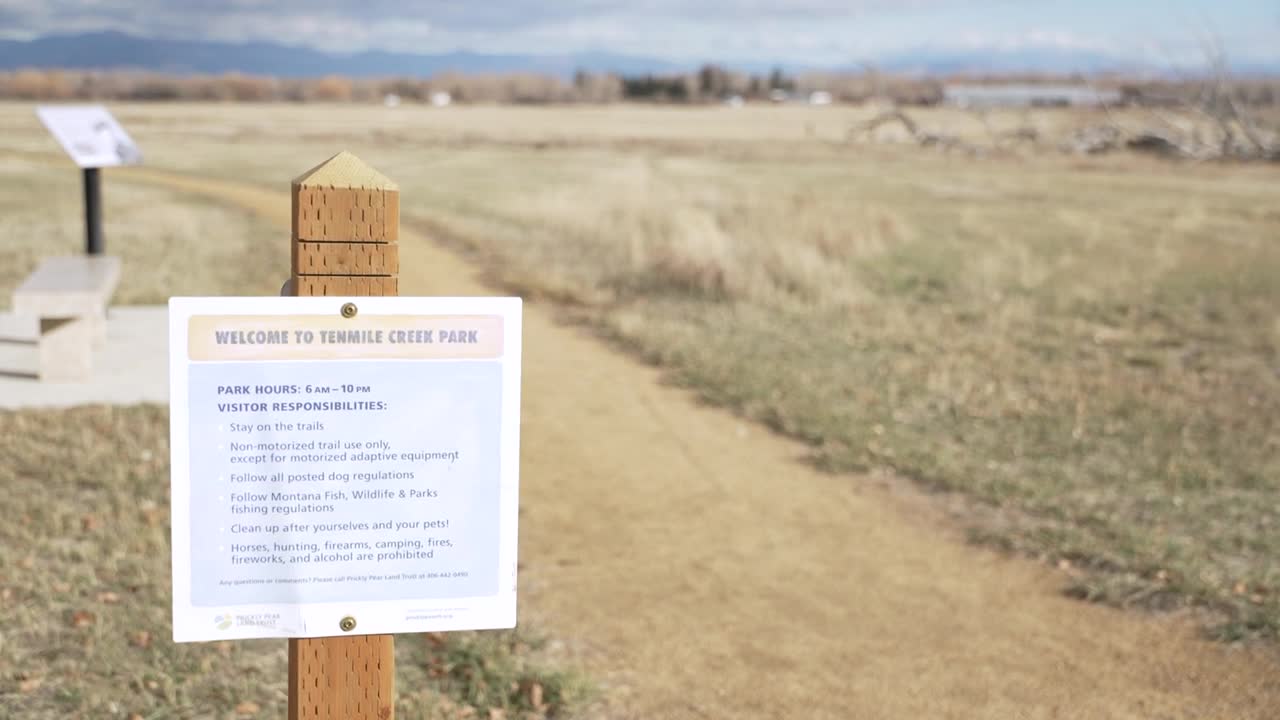HELENA — Changes in federal government programs this year have had ripple effects down to the local level – and that’s included impacts on conservation organizations.
While land projects across Montana may feel very local, Mary Hollow says the federal government can still play a big role.
“Montana is one of those states that receives a lot more from the federal government than we pay in taxes,” she said. “So because of the huge amount of natural resources that we have in this state, a lot of the federal dollars that come into Montana are those that help us manage those natural resources.”
Hollow is executive director of Prickly Pear Land Trust, which takes on conservation and recreation projects around the Helena area. She says her organization felt a major impact from federal action this year.
(Watch the video for a look at how Prickly Pear Land Trust has been affected by federal changes.)
One of the biggest effects was related to a grant from the U.S. Department of Agriculture’s Natural Resources Conservation Service. Hollow says PPLT had already been approved for the grant and was expecting to receive $100,000 each of the next two years. Earlier this year, though, they got word the money wasn’t coming, as the Trump administration had halted some funding that had already been allocated under the Biden administration.
The NRCS grant would have funded a variety of projects across many of PPLT’s properties. In the Sevenmile Creek area, it would have paid for things like stream restoration and upland grass enhancement work.
“We had the staff and we had the program kind of ready to implement, and we just couldn't do it,” said Hollow. “So we had to pivot – and we were able to – but certainly for Prickly Pear and for every organization or business, what that means is that you have to raise the extra money that you lost somewhere else, or you just don't do the work.”

Federal actions also had impacts on PPLT’s work on trails. Hollow says, in places like Helena’s South Hills, there are patchworks of land ownership, and it’s important to work closely with partners. She said the U.S. Forest Service plays an important role in trail maintenance in the South Hills – but when the agency made reductions to its workforce earlier this year, that left PPLT without much of that federal help.
“Prickly Pear pivoted some of our team to do some of that work, but that's not a sustainable solution for the land trust or for the community,” Hollow said.
Hollow said she also remains concerned about reduced federal investment in things like scientific research.
“Think about field biologists or people in this state that are thinking about our water systems and the quantity and quality of the water and where it comes from,” she said.

While PPLT lost out on one NRCS grant, Hollow says they have also used other programs through the service, including some that support the conservation work they do with farms and ranches. She said some of that funding got extended through the recent funding deal that ended the government shutdown, which included a short-term renewal of the federal farm bill. Still, she’s hoping for longer-term solutions that will reduce some of the uncertainty surrounding federal programs.
“Because we're local and grassroots, it helps us to be dynamic and to be able to continue to be responsive to what the community's needs are and what the region's needs are, with regards to access and land and water conservation and things like that,” she said. “But certainly, yeah, it's challenging right now.”






